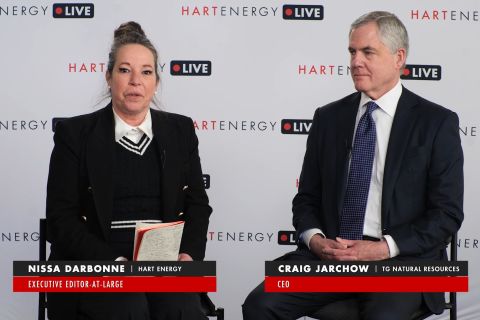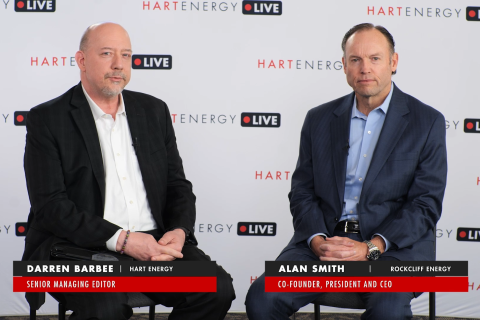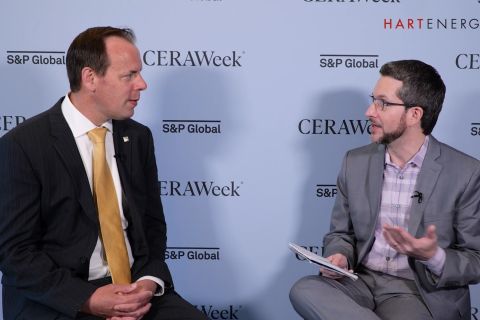
The Trump administration has been an ally to the energy industry, promising “energy dominance” from the campaign trail to the recent rollback of unnecessary regulations. But its latest move—tariffs imposed on imported steel and aluminum—is proving problematic for the industry.
In a March 2018 letter to President Trump, nine trade associations including GPA Midstream warned the president of the tariffs’ negative impacts. “We fear that broad tariffs on the specialty steels used by our industry would cause future projects to be delayed or canceled, thus threatening America’s energy dominance and risking higher prices for families at the gas pump, natural gas ratepayers and energy-consuming employers nationwide,” it warned.
On March 8, President Trump announced that the quantity of steel mill articles imported into the U.S. is a threat to national security and that he “decided to adjust the imports of steel mill articles … by imposing a 25% tariff on such articles imported from most countries, beginning March 23.” Subsequently on May 31, Trump announced tariffs on steel and aluminum imports from Canada, Mexico and the EU.
About one year prior to this, in May 2017, GPA Midstream joined four other trade associations to submit a letter and study to the U.S. Department of Commerce with information “on the feasibility and economic impacts of policies and other actions that might be implemented by the federal government to require that the repair and construction of oil and gas pipelines exclusively use materials and equipment produced in the U.S.”
We submitted comments in April 2017 regarding the same issue: “… The associations continue to urge the administration to ensure that government action to increase domestic steel and pipe production does not have the unintended result of reducing or significantly delaying new pipeline projects and limiting U.S. pipeline job growth.”
The comments and study were submitted in response to the plan directed by the Presidential Memorandum on Construction of American Pipelines.
In addition to the three key findings that emerged from the study, commissioned by our associations and conducted by consulting firm ICF, outlined below, a key conclusion was that due to “… Heavy reliance on imported goods and materials, the long lead time required for many items, and the fact that several of these items are not made in the U.S currently, an immediate implementation of stringent domestic content requirement for line pipe, fittings and valves would mean that most oil and gas pipeline construction projects would be delayed or stalled.”
These tariffs will hurt the midstream industry in three key ways. First, current domestic production for key materials we rely on to construct, operate and maintain our pipelines and supporting midstream infrastructure doesn’t exist, or is limited at best. While we fully support helping our American economy by purchasing American-made steel products, we rely on imported goods for our pipelines for this very reason: There is unfortunately not enough supply available here in our country.
Second, the new tariffs on steel are going to “increase market concentration in the domestic steel industry…” which will lead to “the likelihood of non-competitive pricing behavior and higher prices,” GPA Midstream wrote in our joint May 2017 letter. These higher prices mean that the costs of pipeline projects will increase substantially. Such added expenses will severely hurt midstream operators and suppliers.
Third, it’s important to note the significant impact these tariffs will have on gathering lines. Steel pipe is used in gathering lines and these tariffs will negatively impact how gathering lines are sourced and manufactured, therefore passing a hefty cost onto GPA Midstream’s members and suppliers. The U.S. Pipeline and Hazardous Materials Safety Administration’s database of pipeline and distribution systems, coupled with ICF estimates, show that there are nearly 300,000 miles of gathering lines in the U.S.
These tariffs will impose higher costs on midstream industry operators and suppliers and on Americans who depend on natural gas, crude oil and petroleum products. Contrary to the Trump administration’s rather narrow and erroneous beliefs on the issue, the tariffs will not help put our country on the path toward energy dominance.
GPA Midstream will continue to work with leaders in Congress and the administration to reverse this decision and avoid the impacts on our industry. Over the course of the next year, we will see the total impact these tariffs will have on the midstream industry.
GPA Midstream will continue to work with its fellow trade associations to try to lessen the impact of these tariffs. However, relief will, ironically, most likely come from exclusions negotiated by the Trump administration. In the meantime, the midstream needs to brace for a significant cost increase on anything that has steel and/or aluminum in it.
Matthew Hite is vice president of government affairs for the GPA Midstream Association.
Recommended Reading
Exclusive: Is TG Natural Resources Looking to Snap Up More?
2024-03-27 - At Hart Energy's DUG Gas+ Conference and Expo in Shreveport, Louisiana, TG Natural Resources' President and CEO Craig Jarchow said the integration of the Rockcliff Energy acquisition is well underway and that "being acquisitive is certainly" in the company's future.
Exclusive: Frank Tsuru Reflects on Indigo's History, Impact in the Haynesville
2024-04-11 - Frank Tsuru, president and CEO of Momentum Midstream and former CEO of Indigo Natural Resources, looks back at the early stages of Haynesville development and the Indigo-Southwestern deal, in this Hart Energy Exclusive interview.
Exclusive: Rockcliff CEO on $2.7B TGNR Deal, Value of Haynesville M&A
2024-04-10 - Rockcliff Energy CEO and President Alan Smith discusses the ups and downs of executing the transaction with TG Natural Resources and what's on the Rockcliff III radar, in this Hart Energy Exclusive interview.
Exclusive: Pat Jelinek on Decarbonization Efforts, M&A Outlook
2024-04-16 - Oil and gas leader for EY Americas Pat Jelinek discusses trends in the Lower 48 like consolidation and why decarbonization is "more important" in the near term than the energy transition, in this Hart Energy Exclusive interview.
NOG Closes Utica Shale, Delaware Basin Acquisitions
2024-02-05 - Northern Oil and Gas’ Utica deal marks the entry of the non-op E&P in the shale play while it’s Delaware Basin acquisition extends its footprint in the Permian.





